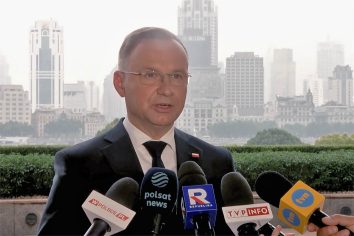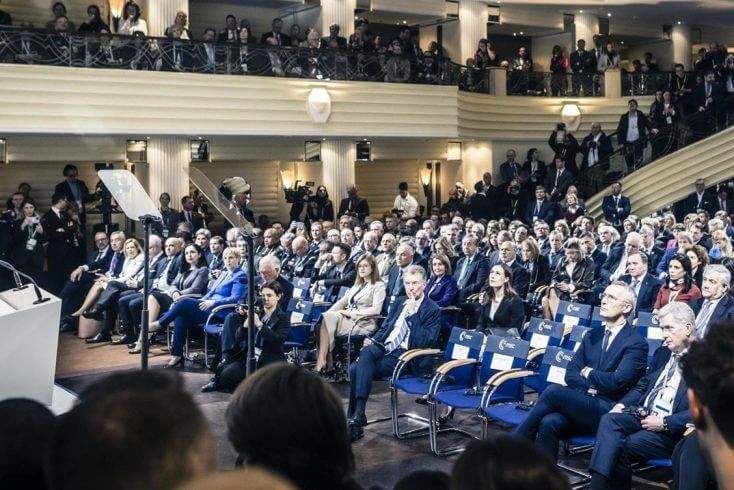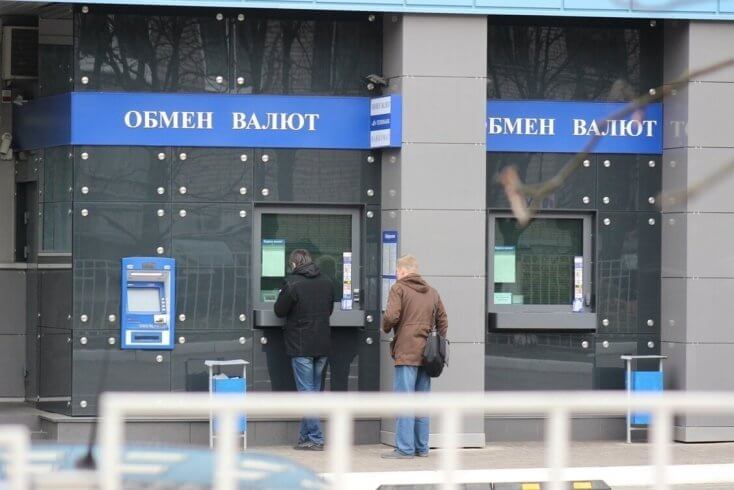Alaksandar Łukašenka has encouraged China to use Belarus a gateway to Europe. The Belarusian ruler is at odds with Europe, with Warsaw threatening to close all border crossings, while Beijing is apparently putting pressure on Minsk to stop its hybrid attacks at its western neighbor.

“Some time ago they tried to tear us away from China. They made a lot of promises, but we did not betray China. That was five or six years ago. We said we would always cooperate with China. And we agreed with Mr Xi Jinping that, if necessary, China could use Belarus to promote its interests in Europe,” Łukašenka told Chinese university executives in Minsk on June 25 in an apparent reference to the United States.
Bolton’s visit
Łukašenka actually alluded to former US President Donald Trump’s policy to slow China’s progress and pressure China’s leaders to become more responsive to American priorities and concerns.
At that time, the Belarusian ruler fell out with Moscow over his resistance to the Kremlin’s attempts to expand its influence in Belarus. In particular, he refused to sign integration road maps proposed by Russia.
The Americans tried to take advantage of that dispute to lure Minsk away from Russia’s orbit, and also wanted Minsk to distance itself from China.
John Bolton, a national security advisor to the US president, visited Minsk in August 2019 to outline Washington’s view of China to Łukašenka.
Mike Pompeo, then US secretary of state, also discussed China during his visit to Minsk in February 2020.
At the time, the Belarusian leader offered the Americans to “turn over this bad page [in bilateral relations] and start a new one.” Moreover, as Bolton admitted in 2023, Łukašenka told him that Moscow posed a threat not only to Belarus but also to Poland and other NATO allies.
Now he casts himself as the one who rejected US overtures. At a meeting with the visiting Russian foreign minister, Sergei Lavrov, in Minsk on June 25, he pledged his loyalty to Moscow.
There is not much else he can do now that he has no room for geopolitical maneuver with relations with the West being at a low point.
Duda’s complaints
Minsk may be already feeling pressure from China to improve ties with western neighbors. In any case, Polish President Andrzej Duda counts on it.
When he met President Xi in Beijing on June 24, Duda complained about Minsk’s policy of using illegal migrants for hybrid attacks on Poland.
Polish Foreign Minister Radosław Sikorski had made it clear that Warsaw could close all checkpoints at the border with Belarus.
Certainly, this would be a double-edged sword because a blockade would affect Poland and other EU countries. So the Poles try to put pressure on Minsk through Beijing first. After all, the Chinese are interested in goods transit through Belarus.
Minsk clearly senses trouble. On June 24, after talks with Lavrov, Foreign Minister Siarhiej Alejnik said that Belarus was ready to discuss border security with Poland.
At the same time, Alejnik accused Warsaw of being inconsistent. He said that Sikorski’s remarks contradicted Poland’s earlier proposal to open additional checkpoints. Lavrov joined the conversation, noting that Polish politicians were “rushing from one extreme to the other.”
Warsaw was shocked by the recent murder of Polish soldier Mateusz Sitek at the border. He died of a stab wound on June 6.
It is clear that after that tragedy, Prime Minister Donald Tusk’s May statement about opening the Bobrowniki border crossing was irrelevant.
Normalization out of sight
Alejnik and Lavrov are well aware of it; they are just pretending to be naive.
Many independent experts are convinced that Moscow orchestrates migrant attacks on NATO countries, while the Minsk vassal is playing a second fiddle.
In June, border guards noted a slight decrease in attempts by illegal migrants to storm the Belarusian-Polish border. But it is unclear what is behind the numbers, a random fluctuation in the flow or a forced adjustment by those who direct it.
In 2021, the European Union’s tough action forced Minsk to deescalate the migration crisis.
At that time, Łukašenka did not hide that he tried to take revenge on Europe for sanctions.
Planes carrying Asians and Africans who wanted to enter the EU illegally flew directly to the Belarusian capital from a number of countries of the Global South.
More recently, most of migrants reach Belarus’ border with Poland via Russia. Therefore, this is the Kremlin’s game, which Łukašenka may not be in a position to stop.
Beijing is in a position to put pressure on Moscow, and it seems to be taking steps in this direction.
Mao Ning, a spokeswoman for the Chinese foreign ministry, said that China expects Poland and Belarus to “treat each other with respect” and “solve border problems through consultations.”
In other words, it is very likely that Minsk has been advised behind the scenes to stop jeopardizing Chinese transits.
In any case, no miracles should be expected in Łukašenka’s relations with neighbors. After suppressing the 2020 protests and supporting the Russian invasion of Ukraine, the Belarusian leadership is determined to stay the anti-Western course.
Meanwhile, only a small gap remains in the iron curtain. The nightmare continues for drivers and passengers at the remaining border crossings.
The time when Bolton, Pompeo or Sikorski visited Minsk is long gone. Planes from these countries do not even fly to Minsk anymore. Łukašenka has burned all the bridges to the West.
He just engages in political grandstanding by selling Belarus as a gateway to Europe.




